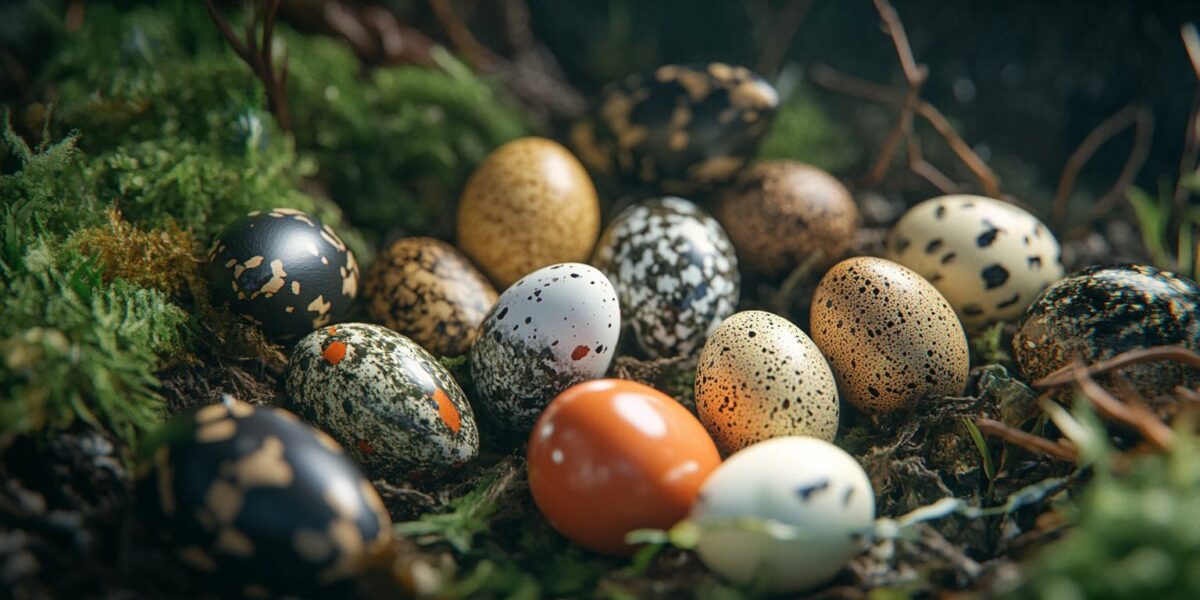The Astonishing Diversity of Eggs
When picturing an egg, diverse images appear, from the hard-boiled chicken egg to the intricate mermaid’s purse of a shark. Each egg tells a unique evolutionary story, crafted meticulously by natural selection to ensure the survival of species through time’s trials.
Eggs have undergone significant changes over the last 500 million years. As climates fluctuated and ecological disasters struck, they adapted. Birds’ eggs developed crystalline shells to withstand atmospheric changes, while mammals’ eggs stayed within the body longer for warmth.
This adaptability raises intriguing questions about how eggs will respond to the upcoming period of climate change. As survival machines molded by environmental factors, their future transformations could be profound.
There is already evidence of changes in eggs due to climate change. This suggests that as the planet warms, the evolutionary journey of eggs will continue to unfold in unexpected ways.
Insects: The Quick Adapters
Insects, with their fast generation times, are adapting rapidly to climate change. In the UK, butterflies and moths now hatch up to six days earlier than a decade ago. Similarly, in the U.S., wild bees start their activities ten days earlier compared to 130 years ago.
This rapid adaptation extends to invasive species. Milder winters are allowing species like mosquitoes to spread diseases such as dengue fever in Europe. The shift in insect populations is directly linked to our changing climate.
Other invertebrates are also thriving due to milder winters. Lyme disease cases have tripled in the U.S. over 25 years due to ticks surviving the winter more frequently. This trend is also seen in tree-munching ash borers and the invasive Asian giant hornet.
- Butterflies and moths hatching earlier
- Wild bees starting activities sooner
- Invasive species spreading diseases
Birds and Extreme Weather
Birds are also adjusting their life cycles. In North America, a third of bird species lay eggs earlier by about twenty-five days compared to a century ago. In the UK, 63% of bird species nested earlier by an average of nine days between 1971 and 1995.
However, extreme weather events pose significant risks to vertebrate eggs. Warmer temperatures skew sea turtle populations female, while unpredictable storms and flooding destroy nests. For instance, Hurricane Irma in 2017 devastated 56% of green turtle nests in Florida.
These environmental changes leave little time for eggs to adapt. The rapid pace of climate change means many species may struggle to survive these harsh new realities.
Despite these challenges, some species may benefit. The tundra-living wolf spider now lays a second clutch of eggs due to longer springs and summers, demonstrating the complex ecological impacts of climate change.
Museums: Custodians of Egg History
For decades, museums have provided invaluable data on the impact of climate change on eggs. They house specimens and records from millions of bird eggs collected over 250 years, offering insights into breeding biology and diet.
Museum eggs were pivotal in linking DDT use to declining bird populations, a story famously told in Rachel Carson’s Silent Spring. Comparisons of eggshells from different eras revealed the environmental impact of pesticides.
Other studies using museum specimens have shown how acid rain caused eggshell malformations in birds. The reduction of calcium carbonate in the soil, affecting snail populations, led to thinner eggshells in blackbirds and thrushes.
Eggs, with their ability to preserve environmental records, offer a unique window into our changing planet. As climate change accelerates, these specimens will become even more crucial in understanding and mitigating its impacts.



henry_nebula
Interesting, but I noticed a small typo in the section about birds. Just thought you’d like to know!
charlotte
OMG, mosquitoes spreading dengue in Europe?! That’s terrifying! 😱
Diego_Seraph
How can we help mitigate these effects on wildlife? Any practical steps we can take?
mariah
Great post, but I’m curious if there are any positive impacts of climate change on eggs?
muffinumbra
This article is really eye-opening. I never thought about how climate change could affect something as fundamental as eggs!
KaylaDrifter
Is it possible for any species to adapt quickly enough to these rapid changes?
wesleymonolith
Fascinating read! Could you explain more about how acid rain impacts eggshells?
john_cipher
Wow, I had no idea that climate change could affect eggs in so many different ways! Thanks for sharing this. 😊